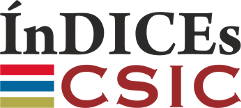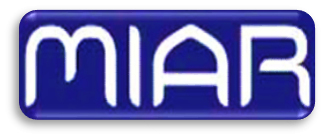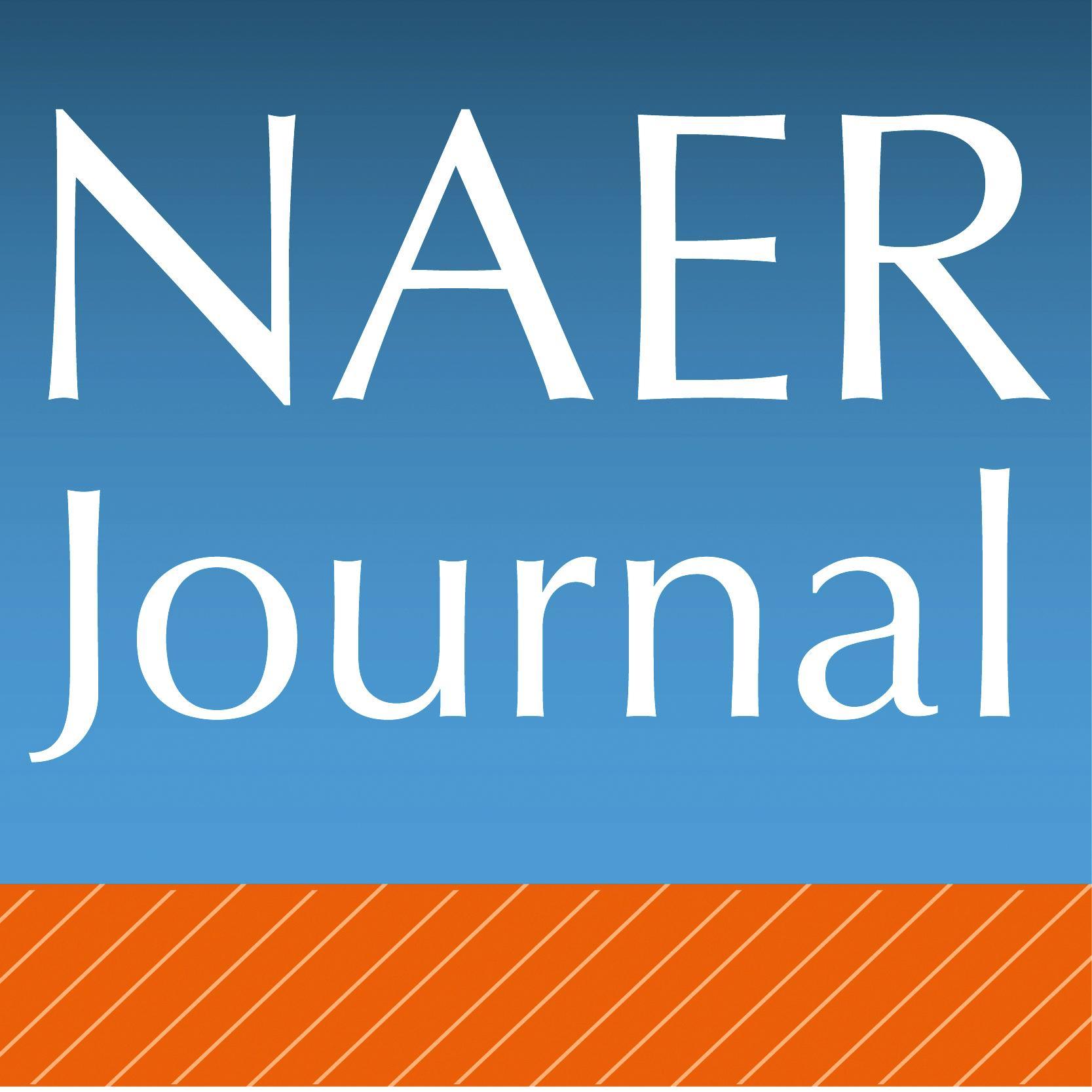Agencia del estudiante, competencia emprendedora y flexibilización de las experiencias de aprendizaje
Resumen
La educación de la competencia emprendedora requiere conectar a los estudiantes con situaciones del mundo exterior y para ello los entornos de aprendizaje enriquecidos por tecnología se presentan como ámbitos adecuados para ello. La educación emprendedora es concebida no solo orientada a enseñar a dirigir un negocio o montar una empresa, sino que también a fomentar el pensamiento creativo y la promoción de un fuerte sentido de autoestima y empoderamiento. Las habilidades asociadas a la competencia emprendedora, son en gran medida cualidades de la agencia del estudiante y remite a la capacidad de actuar intencionalmente, a la intención, motivación, proactividad y la capacidad de actuar del sujeto. La agencia, al igual que la competencia emprendedora, viene relacionada con la preparación para el trabajo experto (potenciando la creatividad, la colaboración, la construcción conjunta de conocimiento y las prácticas de trabajo).
Se presenta aquí un estudio de la agencia en situaciones de aprendizaje caracterizadas por metodologías centradas en el estudiante, especialmente a través de itinerarios flexibles de aprendizaje.
Se utiliza el cuestionario AUS2 para el análisis de la agencia y en los resultados se presenta una selección de preguntas cuyos datos están relacionados con las cualidades asociadas al espíritu emprendedor. Esta selección es utilizada solamente a nivel indicativo. Tampoco tenemos datos de agencia en otras situaciones de aprendizaje con los que puedan compararse. Los resultados presentan valores altos, en general, y en especial en la valoración de los factores participativos que hacen referencia a la percepción de la igualdad de oportunidades, la capacidad de la toma de decisiones o la posibilidad de influir en el curso, en lo que se refiere a facilitar la autonomía y conciencia y responsabilidad en el propio proceso de aprendizaje.
Descargas
-
Resumen1107
-
PDF654
-
PDF Kindle654
Citas
Agudelo, O. y Salinas, J. (2015). Flexible Learning Itineraries Based on Conceptual Maps. J. New Approaches Educ. Res., 4, 70–76. https://doi.org/10.7821/naer.2015.7.130
Ananiadou, K. y Claro, M. (2010). 21st Century Skills and Competences for New Millennium Learners in OECD Countries; OECD Education Working Papers: Paris, France. https://doi.org/10.1787/218525261155
Androutsos, A. y Brinia, V. (2019). Developing and piloting a pedagogy for teaching innovation, collaboration, and co-creation in secondary education based on design thinking, digital transformation, and entrepreneurship. Educ. Sci. 9, 113, https://doi.org/10.3390/educsci9020113
Bacigalupo, M., Kampylis, P., Punie, Y. y Van den Brande, G. (2016). EntreComp: The Entrepreneur- ship Competence Framework. Publication Office of the European Union. EUR 27939 EN. https://doi.org/10.2791/593884
Bartolomé, A. y Lindín, C. (2018). Posibilidades del Blockchain en Educación. Education in the Knowledge Society, 19(4), 81-93. http://doi.org/10.14201/eks20181948193
Bernal-Guerrero, A. y Cárdenas-Gutiérrez, A. R. (2021). La educación de la competencia emprendedora como iniciativa y autonomía personal. Cuestiones Pedagógicas. Revista De Ciencias De La Educación, 2(30), 27–42. https://doi.org/10.12795/CP.2021.i30.v2.02
Buchem, I., Tur, G. y Hoelterhof, T. (2020). The role of learner control and psychological ownership for self-regulated learning in technology-enhanced learning designs. Interaction Design and Architecture(s) Journal - IxD&A, 45,112-132. https://bit.ly/38eaBVj
Castañeda, S., Peñalosa, E. y Austria, F. (2014). Efectos de perfiles agentivos y no agentivos sobre la formación teórica del psicólogo. Componentes de epistemología personal, cognitivos y autorregulatorios. Facultad de Psicología UNAM / CONACyT
Coiduras, J.L., Blanch, A. y Barbero, I. (2020). Initial teacher education in a dual-system: Addressing the observation of teaching performance. Studies In Educational Evaluation, 64(100834), pp. 1 - 7 . https://doi.org/10.1016/j.stueduc.2019.100834 .
Creswell, J.W. (2014). Research design: Qualitative, quantitative, and mixed methods approaches. SAGE
de-Benito, B., Moreno-García, J. y Villatoro Moral, S. (2020a). Entornos tecnológicos en el codiseño de itinerarios personalizados de aprendizaje en la enseñanza superior. Edutec. Revista Electrónica De Tecnología Educativa, 74, 72-93. https://doi.org/10.21556/edutec.2020.74.1843
de Benito, B. y Salinas, J. (2016). La investigación basada en diseño en Tecnología Educativa. RIITE. Revista Interuniversitaria de Investigación en Tecnología Educativa, 0, 44–59. https://doi.org/10.6018/riite2016/260631
de-Benito, B., Villatoro, S. y Salinas, J. (2020b). Propuesta de itinerarios personalizados de aprendizaje en la formación inicial docente. En C. Lindín, M. B. Esteban, J. C. . Bergman, N. Castells, y P. Rivera-Vargas (Eds.), Llibre d’actes de la I Conferència Internacional de Recerca en educació. Educació 2019: reptes, tendències i compromisos (pp. 567-575). LiberLibro. https://bit.ly/3sUyeZX
Eteläpelto, A., Vähäsantanen, K., Hökkä, P. y Paloniemi, S. (2013). What is agency? Conceptualizing professional agency at work. Educational Research Review, 10, 45–65.
European Commission (2018). EntreComp into Action: get inspired, make it happen. https://bit.ly/3lGM6TC
Fayolle, A. (2013): Personal views on future of entrepreneurship education. Entrepreneurship Regional Development: an international Journal. 25(7-8) 692-701 https://doi.org/10.1080/08985626.2013.821318
Foucrier, T. y Wiek, A. A (2019) Process-Oriented Framework of Competencies for Sustainability Entrepreneurship. Sustainability, 11, 7250, https://doi.org/10.3390/su11247250
Goller, M. y Paloniemi, S. (Eds.) (2017). Agency at work. Agentic perspective on professional learning and development. Professional and Practice-based Learning series. Springer
González-Salamanca, J.C.; Agudelo, O.L. y Salinas, J. (2020). Key Competences, Education for Sustainable Development and Strategies for the Development of 21st Century Skills. A Systematic Literature Review. Sustainability, 12, 10366. https://doi.org/10.3390/su122410366
Gros, B. y Noguera, I. (2013). Mirando el futuro: Evolución de las tendencias tecnopedagógicas en Educación Superior. Campus Virtuales, 2, 130–140
Häkkinen, P., Virtanen, T., Virtanen, A., Näykki, P., Pöysä-, J., Niilo-rämä, M. y Järvelä, S. (2019). Finnish pre-service teachers’ perceptions of their strategic learning skills and collaboration dispositions. J. Educ. Teach. 1–16, https://doi.org/10.1080/02607476.2019.1708628
Jääskelä, P., Poikkeus, A.M., Vasalampi, K., Valleala, U.M., y Rasku-Puttonen, H. (2017). Assessing agency of university students: Validation of the AUS Scale. Studies in Higher Education, 42(11), 2061-2079. https://doi.org/10.1080/03075079.2015.1130693
Jääskelä Päivikki, T.A., Marin Victoria, H.P. y Poikkeus, A.M. (2018). Students agency experiences in Finnish and Spanish university courses. ECER. Bolzano, Italia.
Jääskelä, P., Heilala, V., Kärkkäinen, T. y Häkkinen, P. (2020). Student agency analytics: learning analytics as a tool for analysing student agency in higher education. Behaviour & Information Technology. https://doi.org/10.1080/0144929X.2020.1725130
Janssen, J., Berlanga, A.J. y Koper, R. (2011) Evaluation of the Learning Path Specification. Educ. Technol. Soc., 14, 218–230
Jiménez, R. (2015). Educación emprendedora: aprender a emprender. En Jiménez, R.(coord.). Educación emprendedora Programa TALOS para el desarrollo de la iniciativa emprendedora en Ciencias de la Educación. Octaedro.
Manual de Oslo (2006) Guia para la recolección e interpretación de datos de innovación; tercera edición. OECD, European communities y Eurostat.
Marín-Juarros, V., Negre-Bennasar, F. y Pérez-Garcias, A. (2014). Construction of the foundations of the PLE and PLN for collaborative learning. [Entornos y redes personales de aprendizaje (PLE-PLN) para el aprendizaje colaborativo]. Comunicar, 42, 35-43. https://doi.org/10.3916/C42-2014-03
Paganelli, A. (2017). Power to the pupil: school libraries and student agency. Knowledge Quest, 45(4).
Paz-Lourido, B. y de-Benito, B. (2021). Editorial del número especial: El Aprendizaje-Servicio en el Entorno de las Tecnologías Digitales. Edutec. Revista Electrónica De Tecnología Educativa, 78, 1-7. https://doi.org/10.21556/edutec.2021.78.2317
Peña, J. V. Cárdenas, A. Rodríguez, A. y Sánchez, E. (2015). La cultura emprendedora como objetivo educativo: marco general y estado de la cuestión. En L. Núñez (coord.), Cultura emprendedora y educación (pp. 19-59). Universidad de Sevilla.
Salinas, J. y De-Benito, B. (2020). Construcción de itinerarios personalizados de aprendizaje mediante métodos mixtos. Comunicar. 28(65), 31-42, https://doi.org/10.3916/C65-2020-03
Salinas, J., de-Benito, B., Moreno, J. y Lizana, A. (2022). Nuevos diseños y formas organizativas flexibles en educación superior: Construcción de itinerarios personales de aprendizaje. Pixel-Bit. Revista de Medios y Educación, 63, 65-91. https://doi.org/10.12795/pixelbit.91739
Severance, S., Penuel, W.R., Sumner, T. y Leary, H. (2016). Organizing for Teacher Agency in Curricular Co-Design. J. Learn. Sci. 25, 531–564, https://doi.org/10.1080/10508406.2016.1207541
Silva Quiroz, J. E. y Lázaro-Cantabrana, J. L. (2020). La competencia digital de la ciudadanía, una necesidad creciente en una sociedad digitalizada. Edutec. Revista Electrónica De Tecnología Educativa, 73, 37-50. https://doi.org/10.21556/edutec.2020.73.1743
Starkey, L. 2017. Three dimensions of student-centred education: A framework for policy and practice. Critical Studies in Education. https://doi.org/10.1080/17508487.2017.1281829
Trede, F., Macklin, R., y Bridges, D. (2012). Professional identity development: a review of the higher education literature. Studies in Higher Education 37(3), 365–384.
Van Mechelen, M., Schut, A., Gielen, M. y Södergren, A.C. (2019). Children’s assessment of co-design skills: Creativity, empathy and collaboration. In IDC’19, Proceedings of the18th ACM International Conference on Interaction Design and Children (pp. 520–526). https://doi.org/10.1145/3311927.3325334
Veletsianos, G. y Houlden, S. (2020). Radical Flexibility and Relationality as Responses to Education in Times of Crisis. Postdigit Sci Educ 2, 849–862. https://doi.org/10.1007/s42438-020-00196-3
Zabala, M.A y Castañeda, S. (2014). Fenomenología de agencia y educación. Notas para el análisis del concepto de agencia humana y sus proyecciones en el ámbito educativo. Magister, 26, 98-104.
Derechos de autor 2022 Jesús Salinas

Esta obra está bajo una licencia internacional Creative Commons Atribución-NoComercial-CompartirIgual 4.0.
Aquellos autores que tengan publicaciones con esta revista aceptan los términos siguientes :
-
Los autores conservarán sus derechos de autor y garantizarán a la revista el derecho de primera publicación de su obra, el cuál estará simultáneamente sujeto a la Licencia Creative Commons Atribución no comercial compartir por igual 4.0 Internacional que permite compartir, copiar y redistribuir el material en cualquier medio o formato y adaptar, remezclar, transformar y construir sobre el material en los siguientes términos:
Reconocimiento - Debe dar el crédito apropiado, proporcionar un enlace a la licencia, e indicar si se han realizado cambios. Puede hacerlo de cualquier manera razonable, pero no de una manera que sugiere que el licenciante o su uso hace suya. No comercial - No puede utilizar el material con fines comerciales. Compartir bajo la misma - Si remezcla, transformar o crear sobre el material, se debe distribuir sus contribuciones bajo la misma licencia que el original. -
Los autores podrán adoptar otros acuerdos de licencia no exclusiva de distribución de la versión de la obra publicada (p. ej.: depositarla en un archivo telemático institucional o publicarla en un volumen monográfico) siempre que se indique la publicación inicial en esta revista.
-
Se permite y recomienda a los autores difundir su obra a través de Internet (p. ej.: en archivos telemáticos institucionales o en su página web) antes y durante el proceso de envío, lo cual puede producir intercambios interesantes y aumentar las citas de la obra publicada. (Véase El efecto del acceso abierto).
-
En cualquier caso, el Equipo Editorial entiende que las opiniones vertidas por los autores son de su exclusiva responsabilidad.
















